Academic Leadership Award Honors Kooiman’s Statewide Impact
June 28, 2024
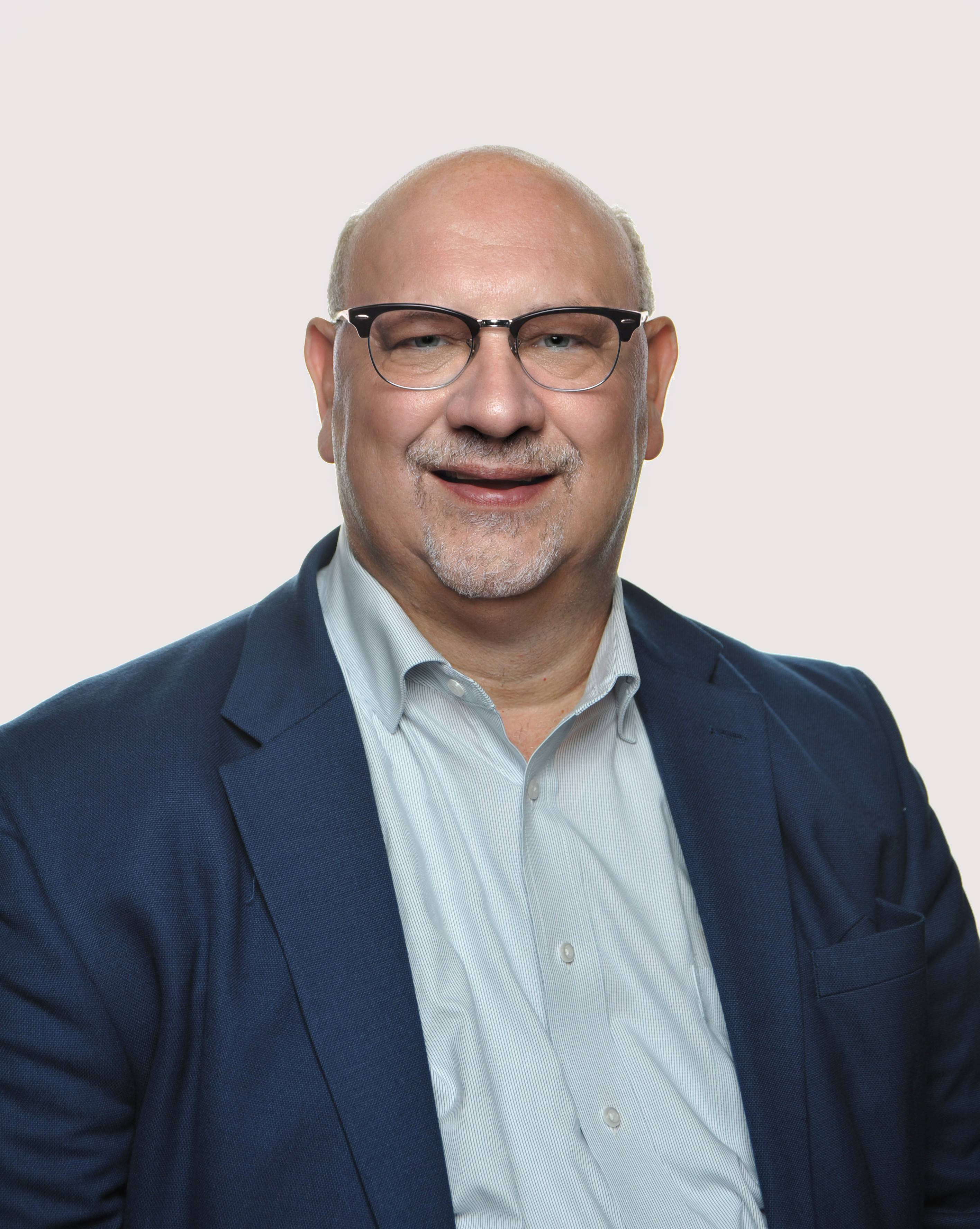 Much like the saying “not all heroes wear capes,” the winner of this year’s Simmons Chivukula Award is proof that not all academic leaders are educators. In fact, Jerry Kooiman might have been the most surprised out of anybody when he found out he’d won.
Much like the saying “not all heroes wear capes,” the winner of this year’s Simmons Chivukula Award is proof that not all academic leaders are educators. In fact, Jerry Kooiman might have been the most surprised out of anybody when he found out he’d won.
“This is going to sound kind of odd, but I really haven’t been about seeking awards, or quite honestly paying that much attention to them,” said Kooiman, who serves as assistant dean for external relations in the College of Human Medicine, and chief external relations officer for the Office of Health Sciences. “It’s awesome to be considered among those who’ve received it over the years. It’s one of the nicest commendations that I’ve ever received.”
The Simmons Chivukula Award for Academic Leadership honors one individual each year for empowering the success of others, developing networks, and defining a clear vision for their unit at Michigan State University. Kooiman said his work tends to happen behind the scenes of academia—and that’s part of what he loves about his job.
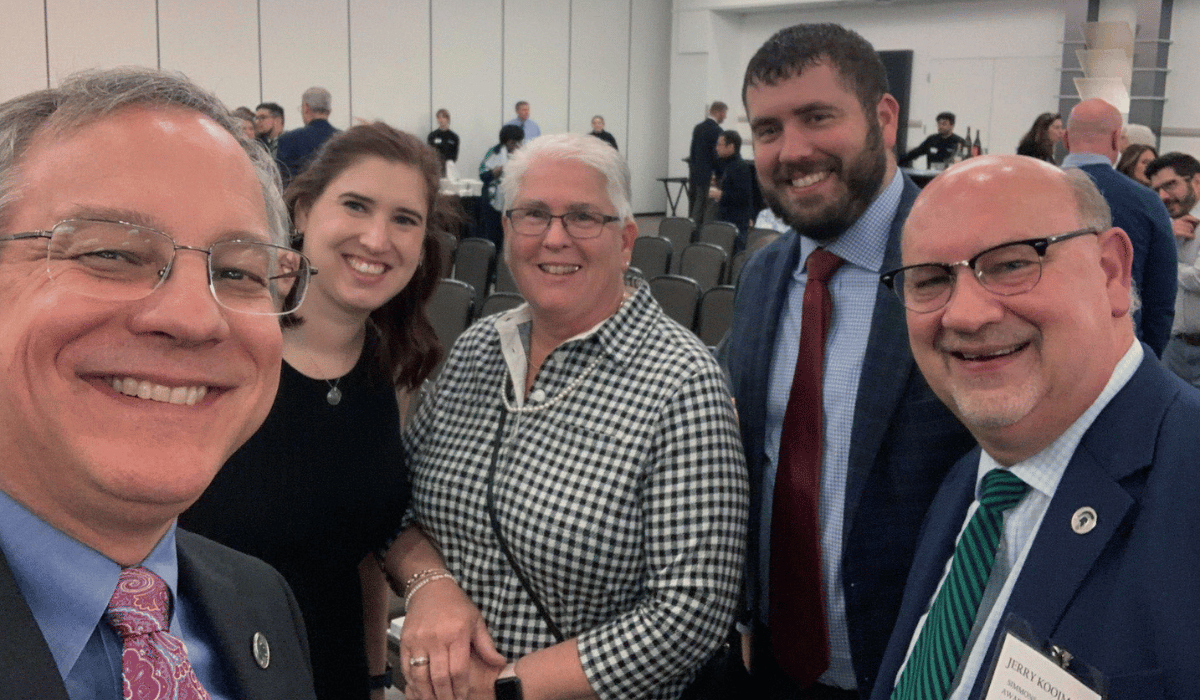
“My preferred location is in my car,” he said, “going out to meet with people where they are, shaking someone’s hand and looking them in the eye, and building trust and a relationship with them.”
When he was hired 17 years ago, Kooiman’s role was to make connections between the academic world of MSU and the health, business, and philanthropic leaders in the Grand Rapids community. At the time, the College of Human Medicine’s headquarters in Grand Rapids were still a glimmer in MSU leadership’s proverbial eye. By 2010, the college was moving in.
“When I met him, he had a hammer in his hand and was putting together furniture in our first, newly rented teaching space in Grand Rapids,” said Aron Sousa, MD, dean. “His work has been remarkable, full stop.”
Kooiman waved away Sousa’s praise.
“This isn’t done in a vacuum,” Kooiman said. “I’m one person in a group of lots of folks—I’ve had the privilege to work with some amazing colleagues, who are as or are more committed to making an impact as I am. I consider it a college award, and an award that my whole staff should take credit in.”
As assistant dean for external relations, Kooiman has taken the lead in building community connections and partnerships for every major expansion of the college, starting with the Grand Rapids campus. That’s where he and his wife live, and it’s the region Kooiman represented for 12 years as an elected official—including in the Michigan House of Representatives.
When asked why he took the job with MSU, Kooiman smiled.
“I was really interested in how research becomes commercialized,” he said. “How do we [in Grand Rapids] grow, from an economic standpoint, to be a hub of commercialized research from the University?”
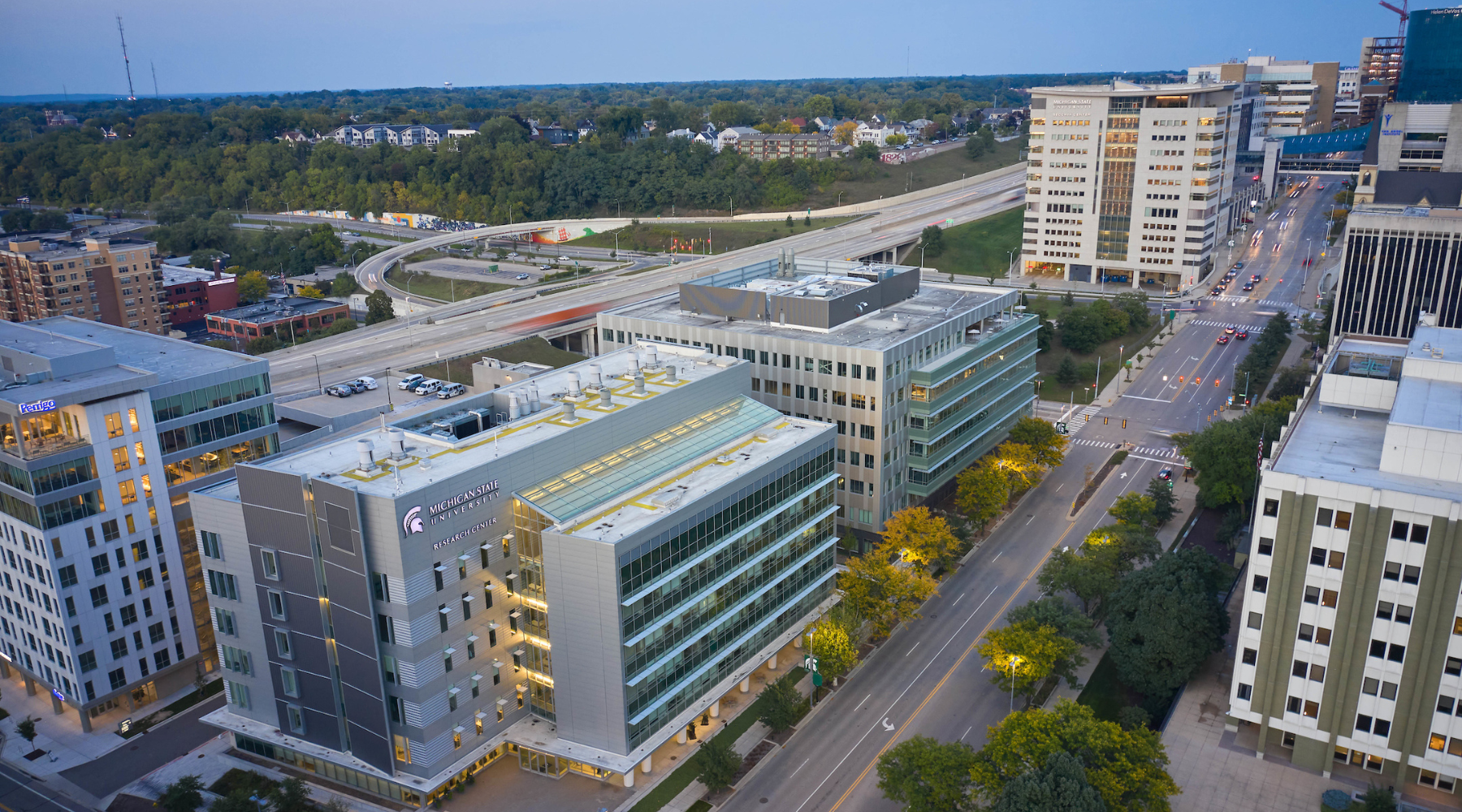
The college’s footprint in Grand Rapids along the “Medical Mile,” includes the $90 million, 100% donor-funded Secchia Center—the medical education program’s main building—along with the MSU Grand Rapids Innovation Park, which includes the Grand Rapids Research Center, the Doug Meijer Medical Innovation Building, and Perrigo’s North American headquarters.
Kooiman said when he was hired to develop the Grand Rapids campus, his first thought was, “This is going to be awesome. And it was.”
More College Expansion
It wasn’t long before Kooiman was involved in other expansions for MSU—notably the college’s Flint campus.
“We’d been there for 45 years educating medical students in the hospitals, yet [Flint’s health outcomes] were in the bottom of Michigan’s 83 counties,” Kooiman said. “I thought, ‘How can that be? How can we have been there this long and not have made any kind of impact?’”
“For me, that was a change in trajectory. We needed to be more than just about training medical students. We needed to think about our role in terms of improving the health of the community.”
Kooiman spent several months meeting with “any organization that in any way looked like it might be connected to health,” he said. “A lot of the feedback was ‘Don’t come and study us—been there, done that, and then we read about how bad we are, which doesn’t help us.’"
“We knew we had to go help them fix things.”
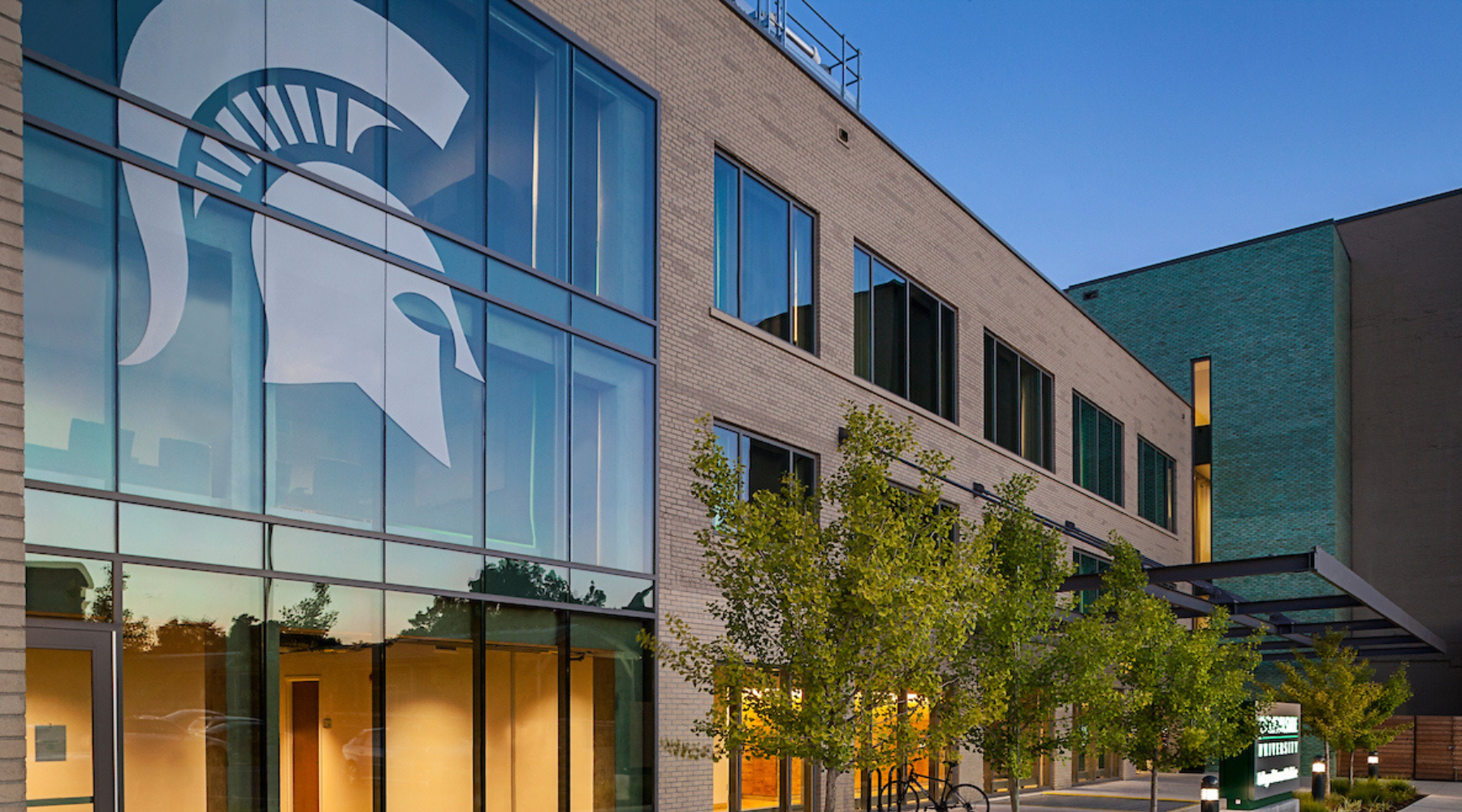 Part of building out a new campus in Flint included recruiting physicians and researchers to work in the local hospitals with which the college had partnered. Doctors like Mona Hanna, MD, a graduate of the College of Human Medicine, who exposed the Flint water crisis in 2015.
Part of building out a new campus in Flint included recruiting physicians and researchers to work in the local hospitals with which the college had partnered. Doctors like Mona Hanna, MD, a graduate of the College of Human Medicine, who exposed the Flint water crisis in 2015.
“If we hadn’t done what we did prior to the water crisis, I’m not sure how long it would have gone on,” Kooiman said. “How do we use the resources of a medical school and turn them into advocacy, developing new programs, and helping people there stay healthy or get healthy?”
The college’s space in Flint continues to grow, with a 40,000 square foot expansion of the former Flint Journal Building, including 18 new tenure stream faculty in the Charles Stewart Mott Department of Public Health.
A Long-Lasting Impact
Kooiman has been involved in a number of other impactful projects for the college. The MIDOCs Program launched in 2017 to put more medical residents into underserved populations throughout the state. Residents in the MIDOCs program commit to working in a rural or underserved urban area in Michigan for two years after their residency ends.
“I worked for about five years with the state legislature to create that program,” Kooiman said. “After a lot of pushing and prodding, we got the legislature to provide $6.5 million in general funds, to be matched by the universities’ medical schools, and then draw down federal funds to create residency programs in areas of medicine that were under significant need in the state of Michigan, and areas of the state where there was a lack of graduate medical education training.”
“If you drew a line along U.S. Highway 10, from Ludington across the state to Midland and then Saginaw, there are only three residency programs above that line in the state. The greatest predictor of where a resident practices following residency is where they did their residency. So if you’re not training residents in these rural areas, then it’s harder to get them to practice there."
The second class of MIDOCs residents graduated in June 2024.
“I think [the impact of that program] is going to be long-lasting,” Kooiman said. “Those are the types of things that really excite me.”
What’s Next
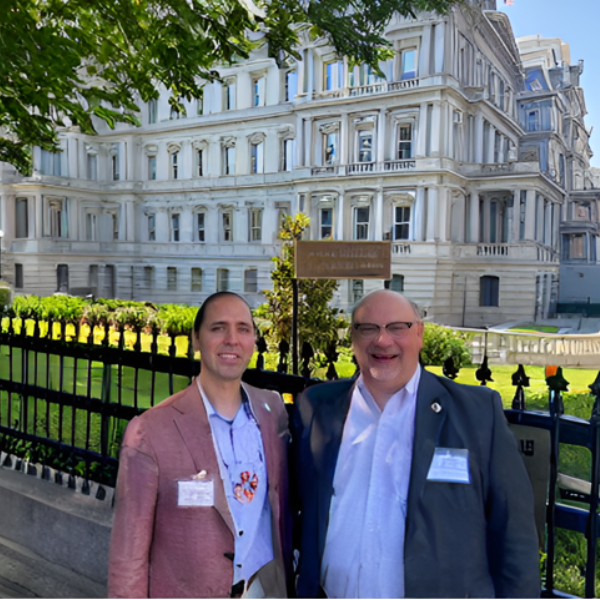 The Simmons Chivukula Award winner has no intention of taking his foot off the pedal any time soon—figuratively or literally.
The Simmons Chivukula Award winner has no intention of taking his foot off the pedal any time soon—figuratively or literally.
“I just spent three days in Washington, D.C., with a group focused on graduate medical education in tribal communities,” he said. “Another project is in the Traverse City community—how do we create a hub there for innovation in health care? And the [Henry Ford Health] effort in Detroit—how do we develop stronger pathways there? And how do we get students in high school more interested in STEM programs? And how can we help mental health care shortages in Northern Michigan?”
“Lots of really fun, really impactful projects,” Kooiman said.
By Lisa Hayes

